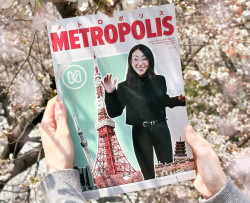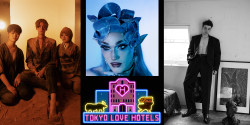
Originally published on metropolis.co.jp on May 2013

It isn’t easy being a guitar prophet. When Metropolis reaches Richard Pinhas, the storied French musician begs off the interview. He’s feeling rough, he says, after a concert with US noise rockers Wolf Eyes the previous weekend. Skip a day and Pinhas is in a better state. He’s at home in Paris watching a political documentary about the rise of China while practicing scales. Does the founder of groundbreaking ’70s French electronic rock band Heldon take a traditional approach to music study?
“There was no way to study guitar when I started in the ’60s,” he answers. “I started around 13, and became serious about playing guitar after seeing Hendrix—he was my main influence at the time.”
Perhaps because the electric guitar was still so fresh then, particularly in France, Pinhas developed an approach eschewing traditional song forms, a method that flowered with Heldon. “At that time you had to learn by yourself because there was no one to teach you,” he recalls in serviceable if heavily accented English. “I finally learned to read and write music when it was needed to be professional in the ’70s and ’80s. But it was not important for a guy of my era.”
Heldon’s extended, hypnotic jams provided the French answer to the ’70s work of fellow experimentalists such as Brian Eno and Robert Fripp. Albums like Electronique Guerilla have come to be seen as landmark works, and brought Pinhas’s music to a new generation of avant-garde music aficionados. “It’s strange that now Heldon is cataloged as noise or postrock,” he admits, “but I keep myself fresh playing with young musicians. Also, I have two sons in their 20s and 30s and they expose me to a lot of new stuff. In France you don’t have a distinction of generations, a guy in his 60s can play with a guy in his 20s.”
Pinhas’s new outing, Desolation Row, is a dark affair where 18-minute opuses surge and ebb on waves of electronic and guitar noise. He says it’s the first part of a trilogy about the effects of neoliberalism on Western countries. “It’s been a very sad time, and I tried to express this in music,” he explains. “Desolation Row is the first, the second will be Devolution, and the third will be The Fall. Every two months we are two times poorer—people sleeping in the streets—we are not used to this. It’s as if we’re living a science-fiction nightmare. You can see something destroying the people, destroying the cities—it’s like a cancer.”
Pinhas, who also holds a philosophy PhD, notes it’s typical for European musicians to express their political awareness in their music. This is perhaps less so the case in Japan—aside from musicians such as noise innovator and outspoken vegan Merzbow, with whom Pinhas will be touring Japan later this month.
“The intelligentsia, musicians, artists have been more politicized for centuries in the West,” he says, “but to be honest I don’t discuss politics with Japanese musicians. Generally they have bad English and are hard to understand. Also, we tour very quickly in Japan and prefer to talk music in the limited time we have. Some Japanese realize which system they are living under, but not in the mainstream.”
Despite his recent collaborations with Merzbow and Ruins’ Tatsuya Yoshida, who will also join the upcoming tour, Pinhas came to Japan late in life. “Japanese culture is very attractive for an old guy like me,” he says. “I suppose it’s the lack of ideology. I discovered Japan in my 40s, and your reaction is different. Japan has fantastic music, there are a lot of great bands making very different music from the USA and Europe—it’s another world.”
SuperDeluxe, May 30; Institut Français, May 31; Tower Records Shibuya, Jun 2; Club Goodman, Jun 6; Pit Inn, Jun 9







